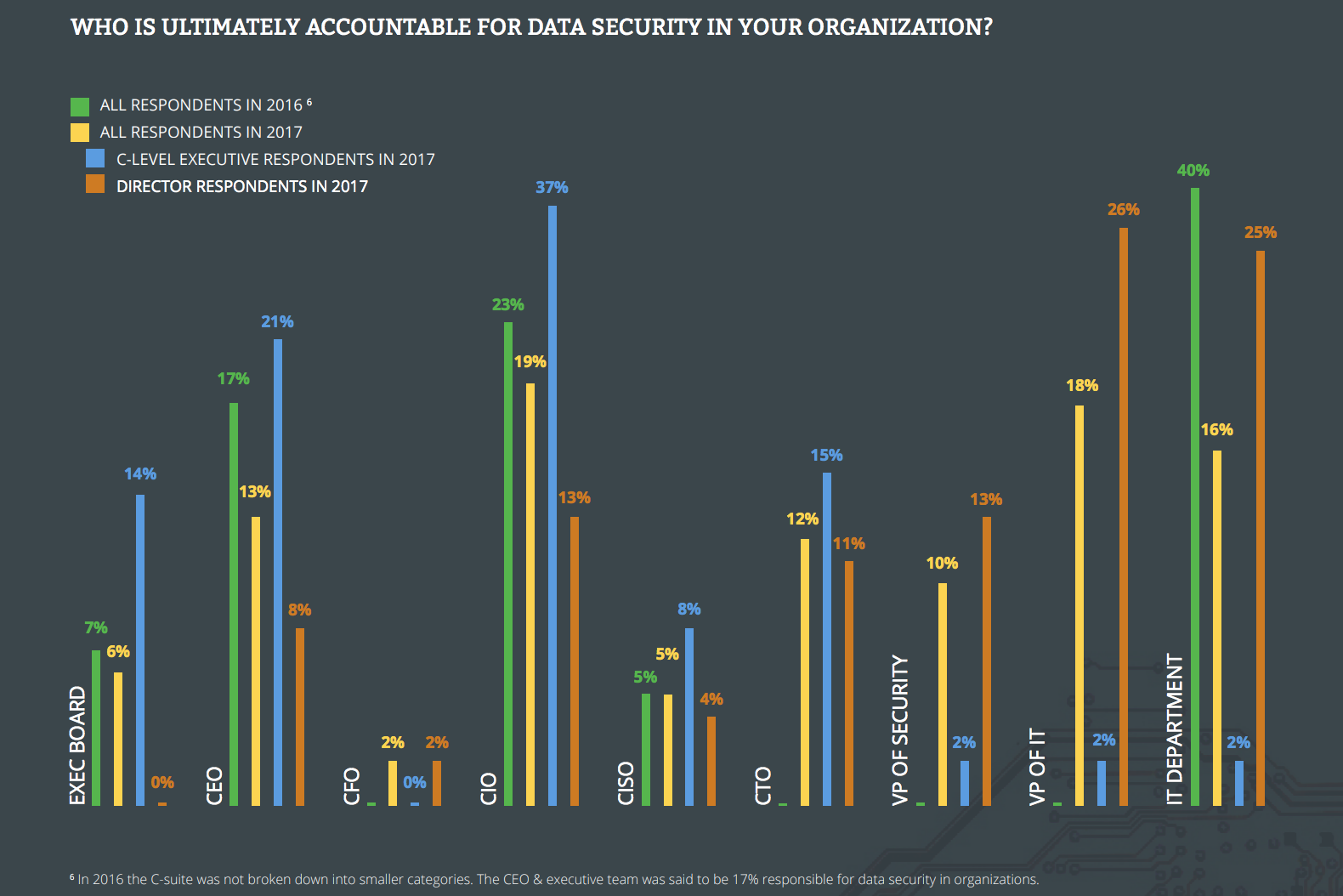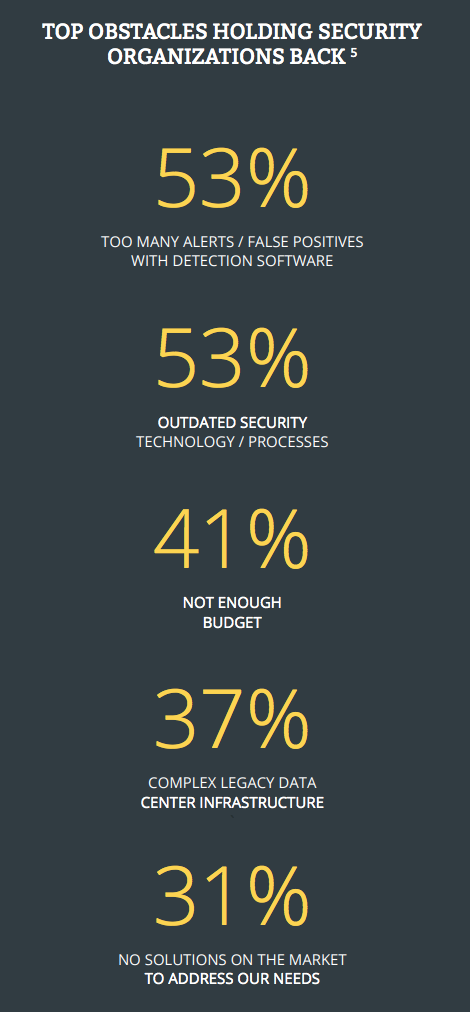Each year we poll a group of CISO and security executives to gather the pulse of what had the most impact on their jobs in the past year and what will be driving their investment strategies in the year ahead. Today, we are unveiling the results of our 4th annual survey: “Cybersecurity Perspectives 2018: the data breach effect.”
Lasting impacts of Equifax
Reviewing the results, it was apparent that recent high profile breaches made a significant impact on how companies focused security investments. 91% said big breaches last year led their company’s CEO / board to change their security programs, most commonly through increased cybersecurity spend and measurement / reporting. And nearly half say the new Senate bill proposing to make non-disclosure a jailable offence has them re-thinking their incident response processes. Furthermore, a breach of sensitive data remained the top security concern for 2017 at 60%.
The value of communication
These incidents are bringing security further to the forefront. Once a siloed group, security is now a responsibility that is now spreading across the C-Suite, IT and Security.

But coordination is needed in order to avoid confusion over priorities and who is responsible for each. There’s a clear divide between the C-suite and directors when it comes to views on top risk factors, threat preparedness and accountability for security. This could ultimately leave the organization more at risk or it could be the natural inclination of each group to assert its own agency. As we uncovered in 2016, there continues to be a need for better security communication between all the responsible parties. Progress has been made, the shift of CISO reporting to CEO is becoming more widespread and the ownership of all parties involved is increasing. But security is a complicated and interrelated business function. It is still fairly nascent as a field, it can be challenging to contain, operates on short time horizons and is constantly evolving. There is still a lot of work the industry can do as a whole to move better communication forward.
Current Security Concerns
With more money being invested in security and increasing executive support as noted above, what obstacles are holding security back? According to the survey, security’s biggest obstacles were the deluge of alerts and false positives, and outdated technology and processes. As stated in the report “new solutions have created an avalanche of alerts that security teams can’t efficiently or effectively triage. This means that one crucial alert that signifies a breach could be buried beneath hundreds of notifications, and teams could find it too late or miss it altogether. They need a way to sift through alerts, eliminate false positives and find correlations between all the signals to identify the truly dangerous ones.” We hear this so often, in fact, that we looked for solutions, which led to our interest and investment in Expel. One obstacle that was overlooked as an answer was the overwhelming lack of security professionals. This topic came up in our annual security dinner last week (we host a small event to preview survey results to a group of CISO/CSOs and security startups). Consensus from that group was that it is still extremely hard to attract top talent, a struggle that more than 50% of enterprises face. Participants stated that most companies attempt to transition security professionals into business executives, which doesn’t necessarily work well vs. bringing in more senior talent from the outside.
This are just a few of the highlights that stood out to me, check out the full report for more details on the survey results.
